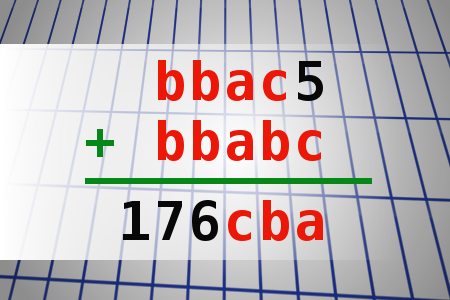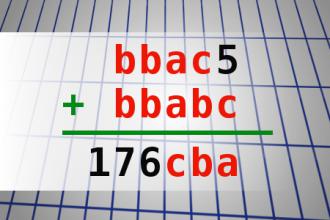Find number abc
If bbac5 + bbabc = 176cba find number abc. Multiple solutions may exist.
3 spies are captured and imprisoned...
The guards come for the american, bind his hands and drag him off. The other 2 hear his screams for sn hour, then nothing. In another hour the guards drag him back in, cut his bonds and dump him on a bunk. "All my training was for nothing, i told them everything."
They take the russian bind his ha ds and drag him out. And for 4 hours the others hear screaming, then nothing. In Another hour, the guards drag the russian back in, cut him loose crying. I yhought after a life in rusdia i had suffered the worst but it was nothing compared to what they did. I told them everything.
The guards then took the italian, bound him, and dragged him out. All day, and all night the others listen to his screams. After what seemed like forever the guards dragged the italian back in, cut him loose and dump him.
The russian says"you must be the toughest man on earth!"
The american says "how did you not break?"
The italian says, "i wanted to, i tried to tell them everything. But they wouldn't untie my hands!!!

